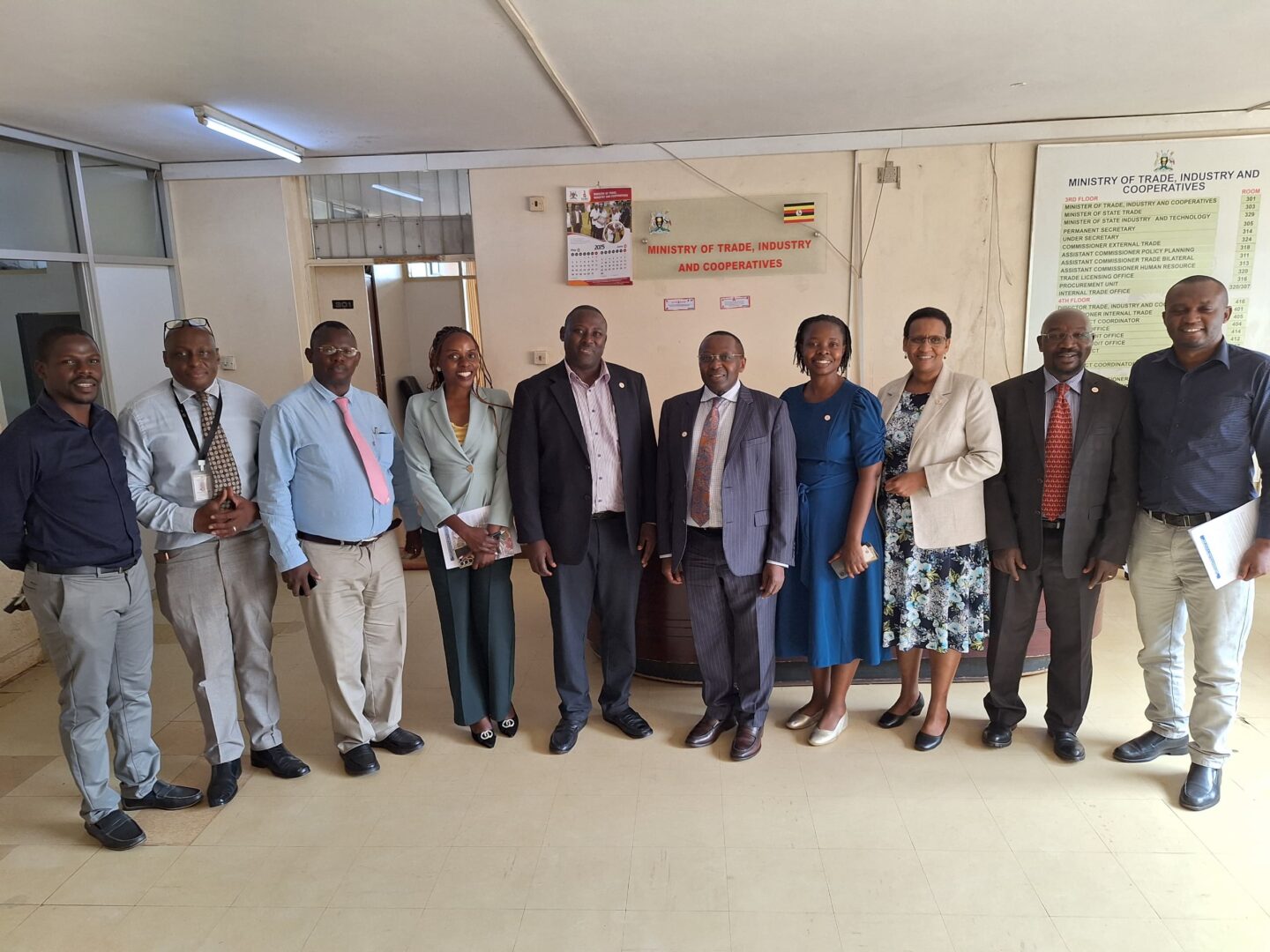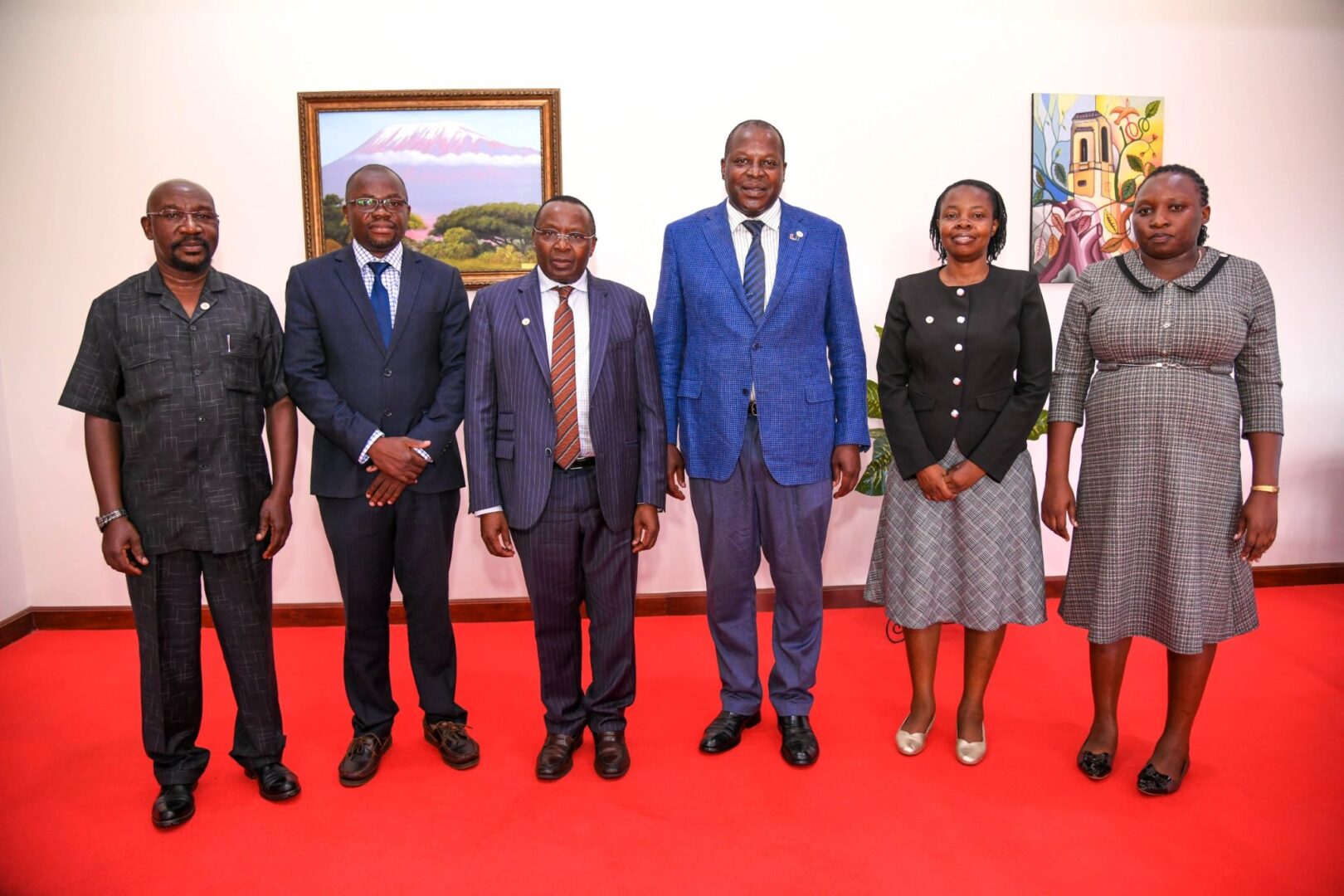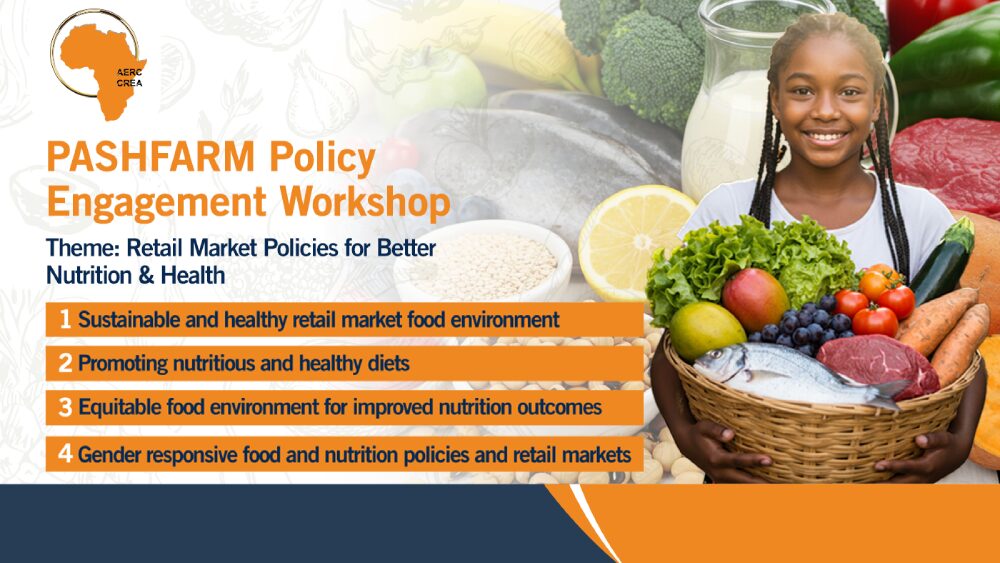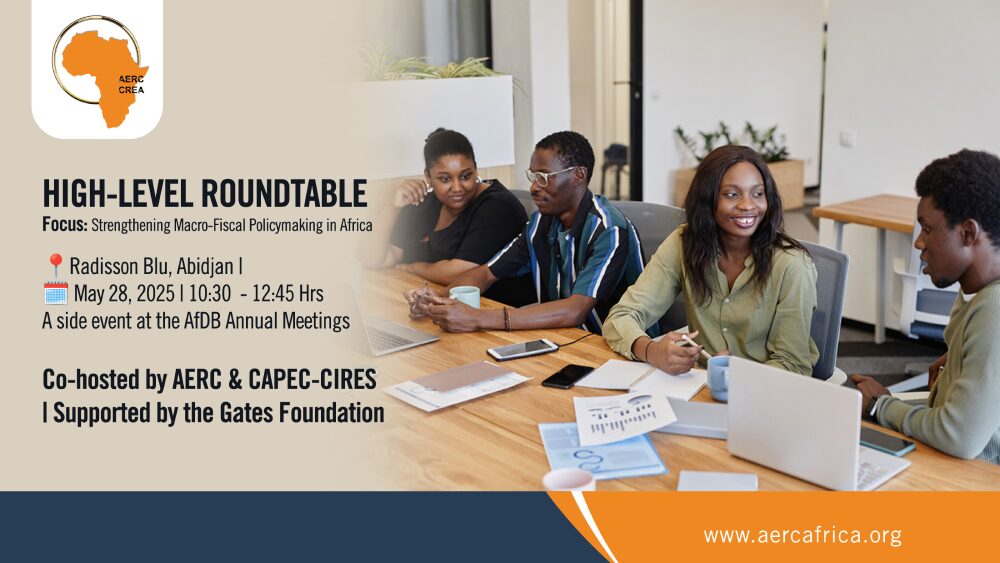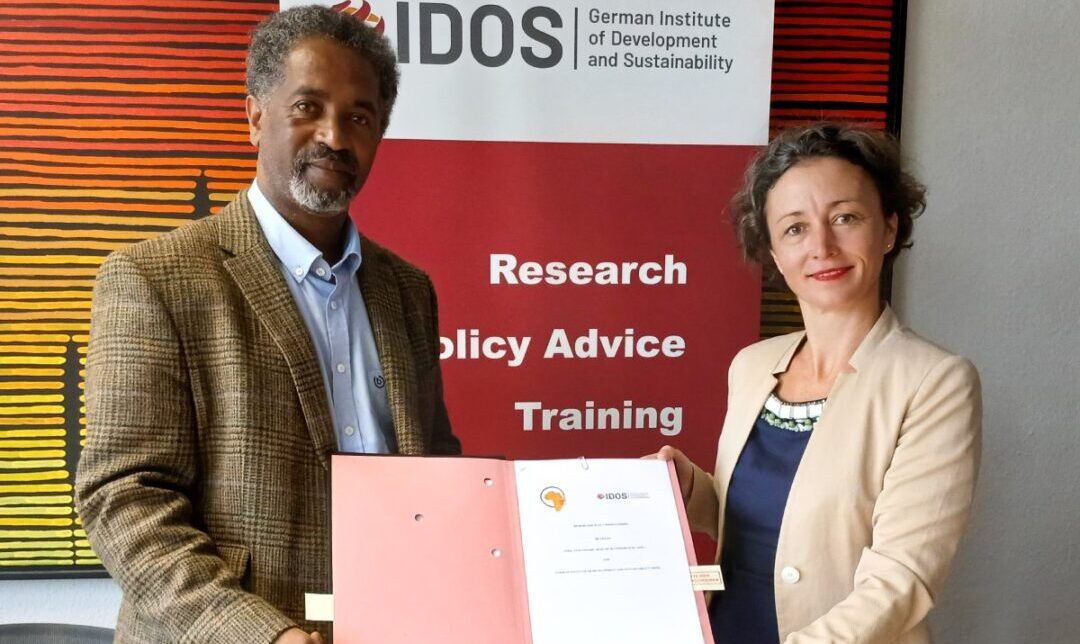

AERC-IDOS sign MoU to strengthen future cooperation
September 9, 2024The African Economic Research Consortium (AERC) and the Institute of Development and Sustainability (IDOS); a German Institute of Development and Sustainability have signed a Memorandum of Understanding (MoU) to strengthen future cooperation between the two eminent organizations.
On this occasion, Prof. Abbi M. Kedir, Director of Research at AERC signed the MoU on behalf of Prof. Victor Murinde, Executive Director of the AERC, alongside IDOS Director Prof. Anna-Katharina Hornidge.
“The AERC is a network that builds capacity through three primary components: research, graduate training in economics, and communications and policy outreach. The organization integrates high quality economic policy research, postgraduate training, and policy outreach within a vast network of researchers, universities, and policy makers across Africa and beyond” said Prof. Murinde, AERC Executive Director.
“The IDOS is seeking to adopt an understanding of international policymaking and cooperation that is broader than the predominant binary understandings of the past (North-South, rich-poor) and to develop concepts for the future strategic orientation of this cooperation and policy-making activities,” said Prof. Hornidge, IDOS Director during the signing ceremony.
According to IDOS’ understanding, the actors, forms, instruments and success factors of global cooperation are fundamental for achieving sustainable development. Thus, collaborating with partners from developing countries, rising powers and Europe, they are working on creating and disseminating knowledge. In doing so, they are committed to the interface between theory and practice and follow internationally established criteria for scientific excellence.
Their training programmes are aimed at German and European university graduates as well as at young leaders from Europe and the major rising powers. As a part of their structured doctoral programme, IDOS works and trains the next generation of researchers and engages in university teaching. They also provide a working environment that values diversity, promotes gender equality, seeks to abolish all forms of workplace discrimination and helps to achieve a better reconciliation of work and family life.
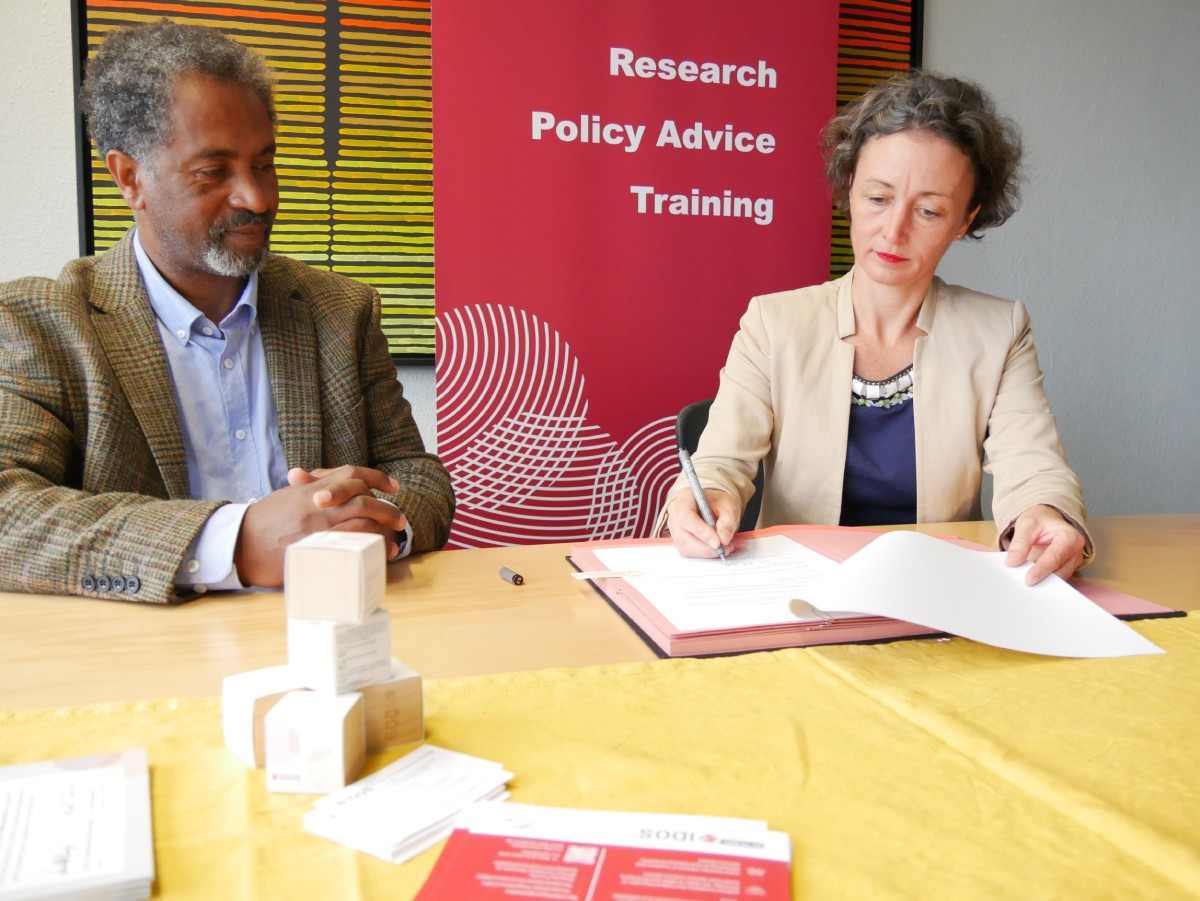
They hugely support a global public welfare policy geared towards the concept of sustainable development through interdisciplinary research, impact-oriented policy advice and internationally oriented training. The IDOS also contributes to improving human welfare in such a way as to reduce poverty and inequality, curb global system risks, mitigate environmental threats, guarantee political participation and ensure that future generations will be able to meet their needs.
The AERC on the other hand is a leader in policy-oriented economic research in the continent. The Consortium was established in 1988 as a public not-for-profit organization devoted to building capacity for economic policy research into problems pertinent to the management of economies in sub-Saharan Africa. In the current five years strategy, the AERC has emphasized the themes of raising its quality for research and graduate training outputs that will develop a momentum of its own sustainability that will become important for policy influence across SSA economies.


